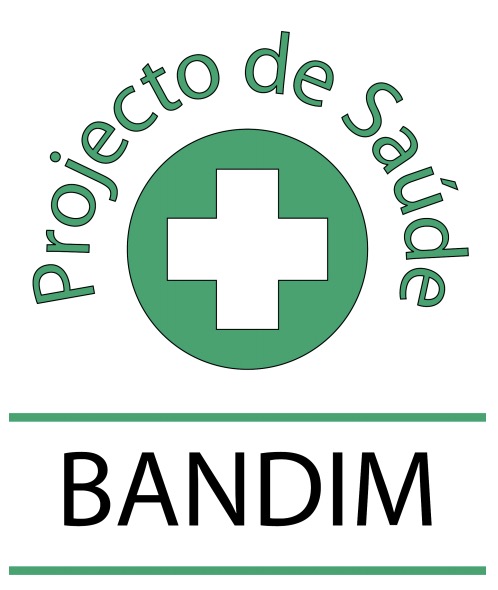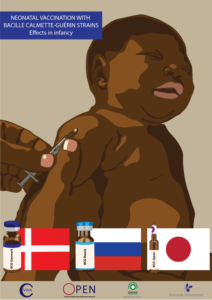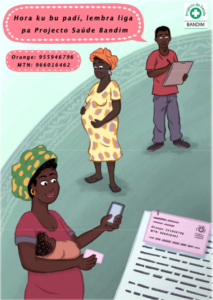PhD Dissertations
Here is a list of PhD dissertations written by Bandim Health Projects researchers in the period 1994 – 2023
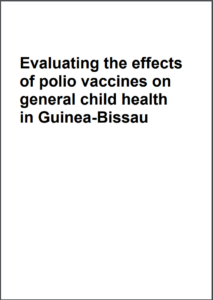 | Møller Nanque, Line 2023 Evaluating the effects of polio vaccines on general child health in Guinea-Bissau Bandim Health Project, University of Southern Denmark. | ||
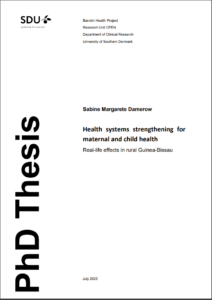 | Damerow, Sabine 2023 Health systems strengthening for maternal and child health: Real-life effects in rural Guinea-Bissau Bandim Health Project, University of Southern Denmark | ||
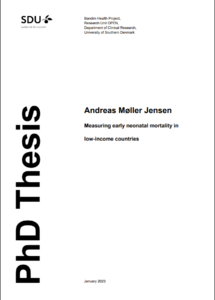 | Jensen, Andreas Møller 2023 Measuring early neonatal mortality in low-income countries Bandim Health Project, University of Southern Denmark | ||
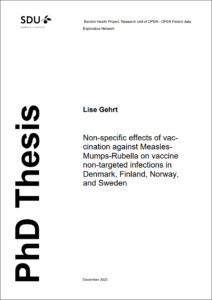 | Gehrt, Lise 2023 Bandim Health Project, University of Southern Denmark, Norwegian Institute of Public Health, Public Health Agency of Sweden, THL | ||
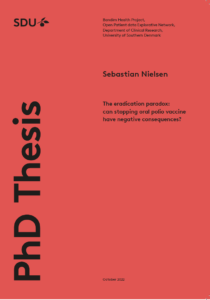 | Nielsen, Sebastian 2023 The eradication paradox: can stopping oral polio vaccine have negative consequences? Bandim Health Project, University of Southern Denmark | ||
| Schaltz-Buchholzer, Frederik 2020 Neonatal vaccination with Bacille Calmette-Guérin strains: Effects in infancy. Bandim Health Project, University of Southern Denmark. | ||
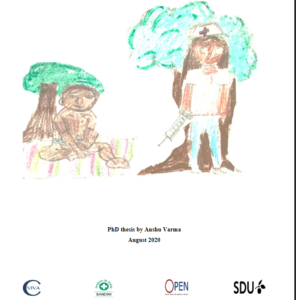 | Varma, Anshu. 2020 CVIVA, Bandim Health Project, University og Southern Denmark. Department of Clinical Research (OPEN) | ||
| Thysen, Sanne Marie 2019 BCG vaccination policy in Guinea-Bissau – cost and impact on mortality Aarhus University, Center for Global Health, Bandim Health Project, Statens Serum Institut. | ||
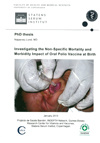 | Lund, Najaaraq 2013 Investigating the Non-Specific Mortality and Morbidity Impact of Oral Polio Vaccine at Birth. Bandim Health Project, INDEPTH NETWORK. Research Center for Vitamins and Vaccines, Statens Serum Institut. Faculty of Health Sciences, University of Copenhagen. | ||
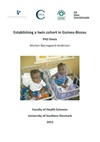 | Bjerregaard-Andersen, Morten 2013 Establishing a twin cohort in Guinea-Bissau. Bandim Health Project, Statens Serum Institut. Faculty of Health Sciences, University of Southern Denmark. Odense University Hospital. | ||
 | Rudolf, Frauke 2013 The Bandim TBscore- reliability, further development and evaluation of potential uses. Health Aarhus University, Department of Infectious Medicine Skejby University Hospital, Institute of Clinical Medicine Projecto Saúde Bandim, INDEPTH Network, Guinea-Bissau. | ||
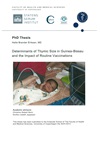 | Brander Eriksen, Helle 2013 Determinants of Thymic Size in Guinea-Bissau and the Impact of Routine Vaccinations. Bandim Health Project, Statens Serum Institut. Faculty of Health and Medical Sciences, University of Copenhagen. | ||
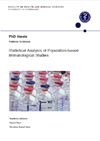 | Andersen, Andreas 2012 Statistical Analysis of Population-Based Immunological Studies. Bandim Health Project, Statens Serum Institut. Faculty of Health and Medical Sciences, University of Copenhagen. 131 p. | ||
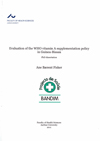 | Fisker, Ane Bærent 2011 Evaluation of the WHO vitamin A supplementation policy in Guinea-Bissau. Bandim Health Project, Statens Serum Institut. Department of Biostatistics, Institute of Public Health, Aarhus University. | ||
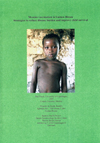 | Martins, Cesário Lourenço 2011. Measles Vaccination in Guinea-Bissau. Strategies to Reduce Disease Burden and Improve Child Survival. Bandim Health Project, Statens Serum Institut. Faculty of Health Sciences, University of Copenhagen. | ||
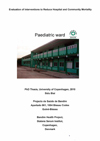 | Biai, Sidu 2011 Evaluation of Interventions to Reduce Hospital and Community Mortality. Bandim Health Project, Statens Serum Institut. Faculty of Health Sciences, University of Copenhagen. | ||
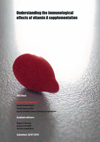 | Jørgensen, Mathias Jul 2010 Understanding the immunological effects of vitamin A supplementation. Bandim Health Project, Statens Serum Institut. Faculty of Health Sciences, University of Copenhagen. | ||
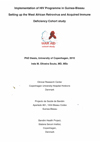 | Souto, Inês M. Oliveira 2010 Implementation of HIV Programme in Guinea-Bissau. Setting up the West African Retrovirus and Aquired Immune Deficiency Cohort Study. Bandim Health Project, Statens Serum Institut. Clinical Research Center Copenhagen University Hospital Hvidovre. 119 p. | ||
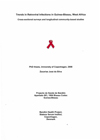 | da Silva, Zacharias José 2009 Trends in Retroviral Infections in Guinea-Bissau, West Africa. Cross-sectional surveys and longitudinal community-based studies Bandim Health Project, Statens Serum Institut. Faculty of Health Sciences, University of Copenhagen. | ||
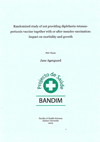 | Agergaard, Jane 2009 Randomised study of not providing diphtheria-tetanus-pertussis vaccine together with or after measles vaccination: Impact on morbidity and growth. Bandim Health Project, Statens Serum Institut. Faculty of Health Sciences, Aarhus University. | ||
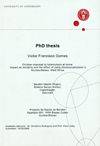 | Gomes, Victor 2009 Children exposed to tuberculosis at home: impact on mortality and the effect of using chemoprophylaxis on Guinea-Bissau, West-Africa. Bandim Health Project, Statens Serum Institut. Faculty of Health Sciences, University of Copenhagen. | ||
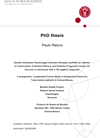 | Rabna, Paulo 2008 Soluble Urokinase Plasminogen Activator Receptor (suPAR) as a Marker of Tuberculosis Treatment Efficacy and Potential Prognostic marker for Survival in individuals with a TB negative diagnosis. A prospective, Longitudinal Cohort Study in Suspected Pulmonary Tuberculosis patients in Guinea-Bissau. Bandim Health Project, Statens Serum Institut. Faculty of Health Sciences, University of Copenhagen. | ||
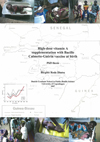 | Diness, Birgitte Rode 2007 High-dose vitamin A supplementation with Bacille Calmette-Guérin vaccine at birth. Bandim Health Project, Statens Serum Institut. Danish Gradual School in Public Health Science, University of Copenhagen. | ||
 | Wejse, Christian 2007 The role of vitamin D in the pathogenesis and treatment of tuberculosis. Bandim Health Project, Statens Serum Institut. Department of Infectious Diseases, Aarhus University Hospital, Skejby. Faculty of Health Sciences, Aarhus University. | ||
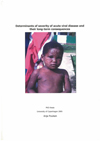 | Poulsen, Anja 2005 Determinants of severity of acute viral disease and their long-term consequences. Bandim Heatlh Project, Department of Epidemiology Research, Statens Serum Institut. University of Copenhagen. | ||
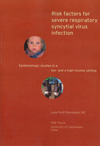 | Stensballe, Lone Graff 2005 Risk Factors for Severe Respiratory Syncytial Virus Infection. Bandim Health Project, Department of Epidemiology Research, Statens Serum Institut. University of Copenhagen. | ||
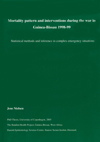 | Nielsen, Jens 2005 Mortality pattern and interventions during the war in Guinea-Bissau 1998-99. Statistical methods and inference in complex emergency situations. Bandim Health Project, Danish Epidemiology Science Centre, Statens Serum Institut. University of Copenhagen. | ||
 | Dræbel, Tania 2004 Public Health Response in a Complex Political Emergency and its aftermath: the role of National Health Professionals in Conflict and Health systems change in Guinea-Bissau. Bandim Health Project, Division of Epidemiology, Statens Serum Institut. Department of Public Health, University of Copenhagen. | ||
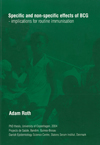 | Roth, Adam 2004 Specific and non-specific effects of BCG – implications for routine immunisation. Bandim Health Project, Division of Epidemiology, Statens Serum Institut. University of Copenhagen. | ||
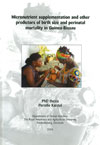 | Kæstel, Pernille 2004 Nutrition and reproductive health in Guinea-Bissau. Bandim Health Project, Statens Serum Institut. The Royal Veterinary and Agricultural University, Copenhagen. | ||
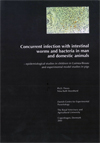 | Steenhard, Nina Ruth 2003 Concurrent infection with intestinal worms and bacteria in man and domestic animals. Epidemiological studies in children in Guinea-Bissau and experimental model studies in pigs. Bandim Health Project, Statens Serum Institut. Danish Centre for Experimental Parasitology, Faculty of Life Sciences, The Royal Veterinary and Agricultural University. 176 p. | ||
 | Veirum, Jens Erik 2003 Childhood hospitalisations in a West African city. Bandim Health Project, Department of Epidemiology Research, Danish Epidemiology Science Centre, Statens Serum Institut. University of Copenhagen. | ||
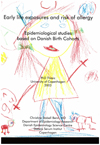 | Benn, Christine Stabell 2003 Early life exposures and risk of allergy. Bandim Health Project, Department of Epidemiology Research, Danish Epidemiology Science Centre, Statens Serum Institut. University of Copenhagen. | ||
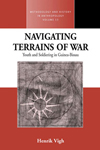 | Vigh, Henrik 2003 Navigating terrains of war: youth and soldiering in Guinea Bissau. Bandim Heatlh Project, Division of Epidemiology, Statens Serum Institut. Institute of Anthropology, University of Copenhagen. | ||
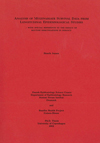 | Jensen, Henrik 2002 Analysis of Multivariate Survival Data from Longitudinal Epidemiological Studies – with special reference to the impact of routine immunisation in infancy. Bandim Health Project, Danish Epidemiology Science Centre, Department of Epidemiology Research, Statens Serum Institut. University of Copenhagen. 162 p. | ||
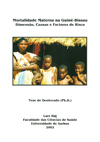 | Høj, Lars 2002 Maternal mortality in rural Guinea Bissau: level, causes and determinants. Bandim Health Project, Division of Epidemiology, Statens Serum Institut. Aarhus University. | ||
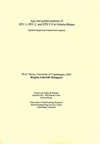 | Holmgren, Birgitta 2002 Age and gender patterns of HIV-1, HIV-2, and HTLV-1 in Guinea-Bissau. Epidemiological and Behavioural Aspects. Bandim Health Project, Department of Epidemiology Research, Danish Epidemiology Science Center, Statens Serum Institut. University of Copenhagen. | ||
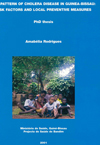 | Rodrigues, Amabélia 2001 The pattern of cholera disease in Guinea-Bissau: Risk factors and local preventive measures. Bandim Health Project, Department of Epidemiology Research, Statens Serum Institut. University of Copenhagen. Ministry of Health, Guinea-Bissau. | ||
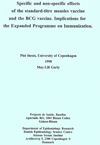 | Garly, May-Lill 1999 Specific and non-specific effects of standard-titre measles vaccine and the BCG vaccine. Bandim Health Project, Statens Serum Institut. University of Copenhagen. | ||
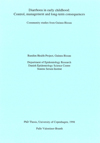 | Valentiner-Branth, Palle 1999 Diarrhoea in early childhood: Control, management and long-term consequences. Bandim Health Project, Department of Epidemiology Research, Danish Epidemiology Science Centre, Statens Serum Institut. University of Copenhagen. | ||
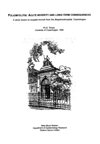 | Nielsen, Nete Munk 1999 Poliomyelitis: Acute Severity and Long-term Consequences. A Study Based on Hospital Records from the Blegdamshospital. Bandim Health Project, Department of Epidemiology Research, Statens Serum Institut. University of Copenhagen. | ||
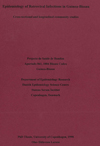 | Larsen, Olav Ditlevsen 1998 Epidemiology of Retroviral Infections in Guinea-Bissau. Bandim Heatlh Project, Department of Epidemiology Research, Statens Serum Institut. University of Copenhagen. | ||
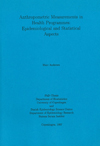 | Andersen, Marc 1997 Anthropometric Measurements in Health Programmes: Epidemiological and Statistical Aspects. Bandim Health Project, Statens Serum Institut. University of Copenhagen. | ||
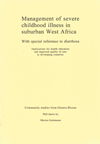 | Sodemann, Morten 1996 Management of severe childhood illness in suburban West Africa, with special reference to diarrhoea. Implications for health education and improved quality of care in developing countries. Bandim Health Project, Statens Serum Institut. Aarhus University. | ||
 | Jakobsen, Marianne Skytte 1996 Breast feeding in developing countries. Promotion and impact on child health. Bandim Health Project, Statens Serum Institut. Department of Epidemiology and Social Medicine, Aarhus University. | ||
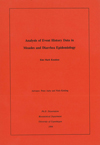 | Knudsen, Kim Mark 1994 Analysis of Event History Data in Measles and Diarrhea Epidemiology. Bandim Health Project, Statens Serum Institut. Biostatistical Department, University of Copenhagen. 93 p. | ||
